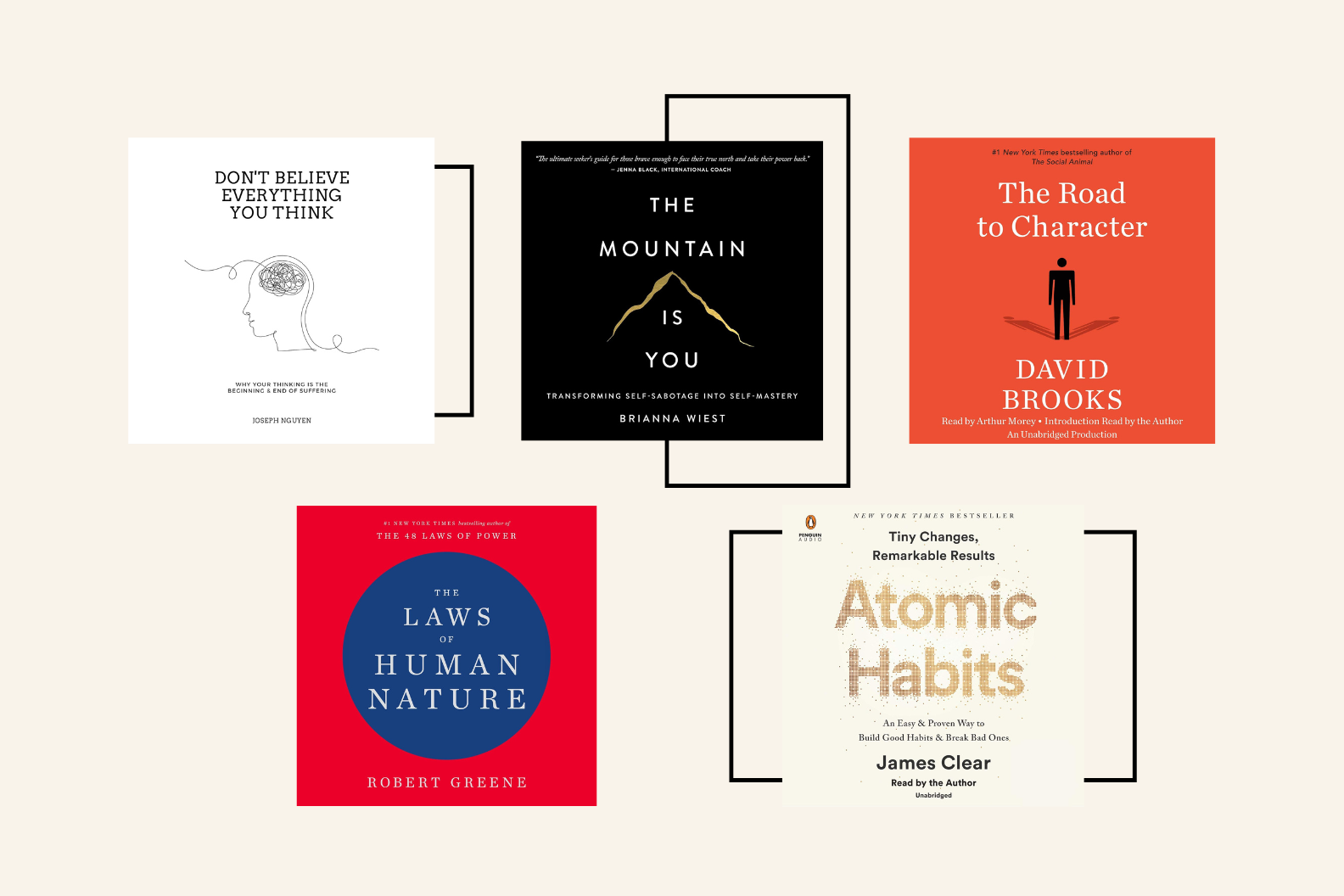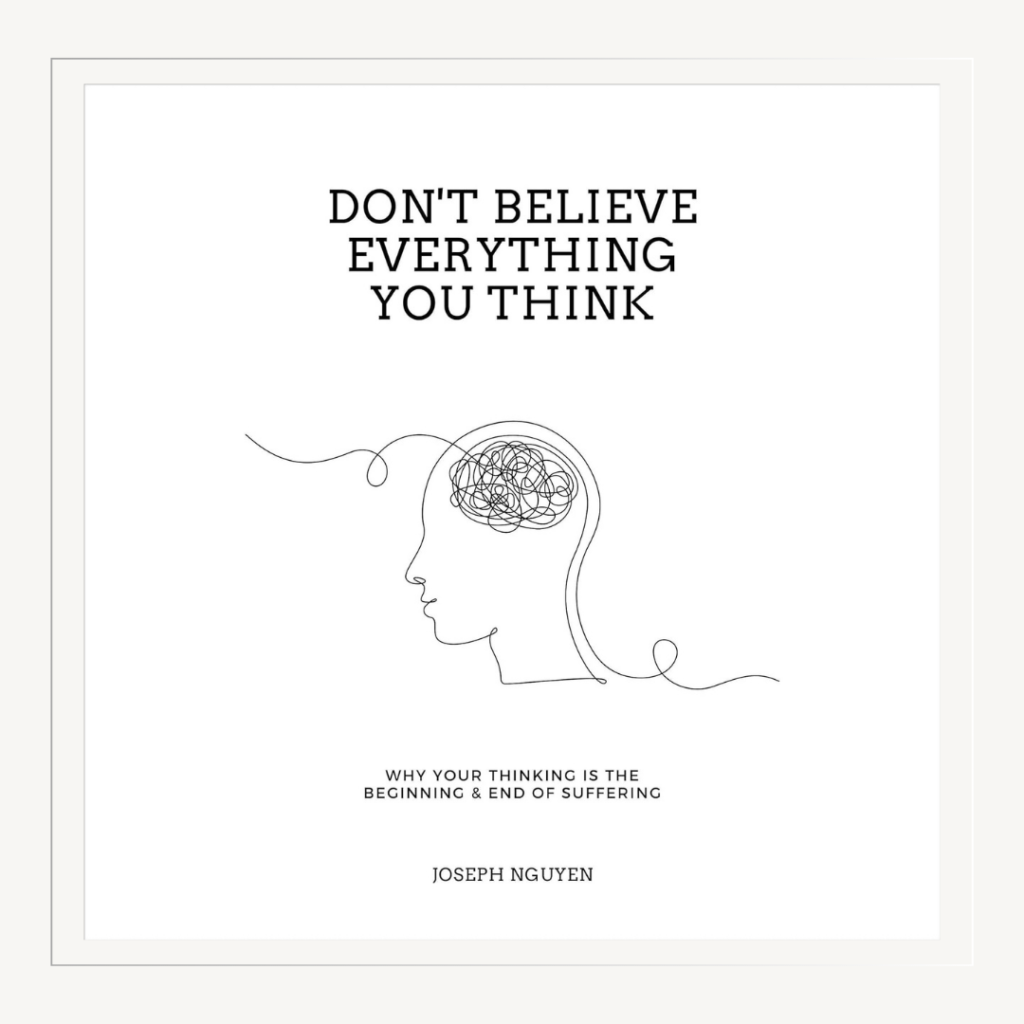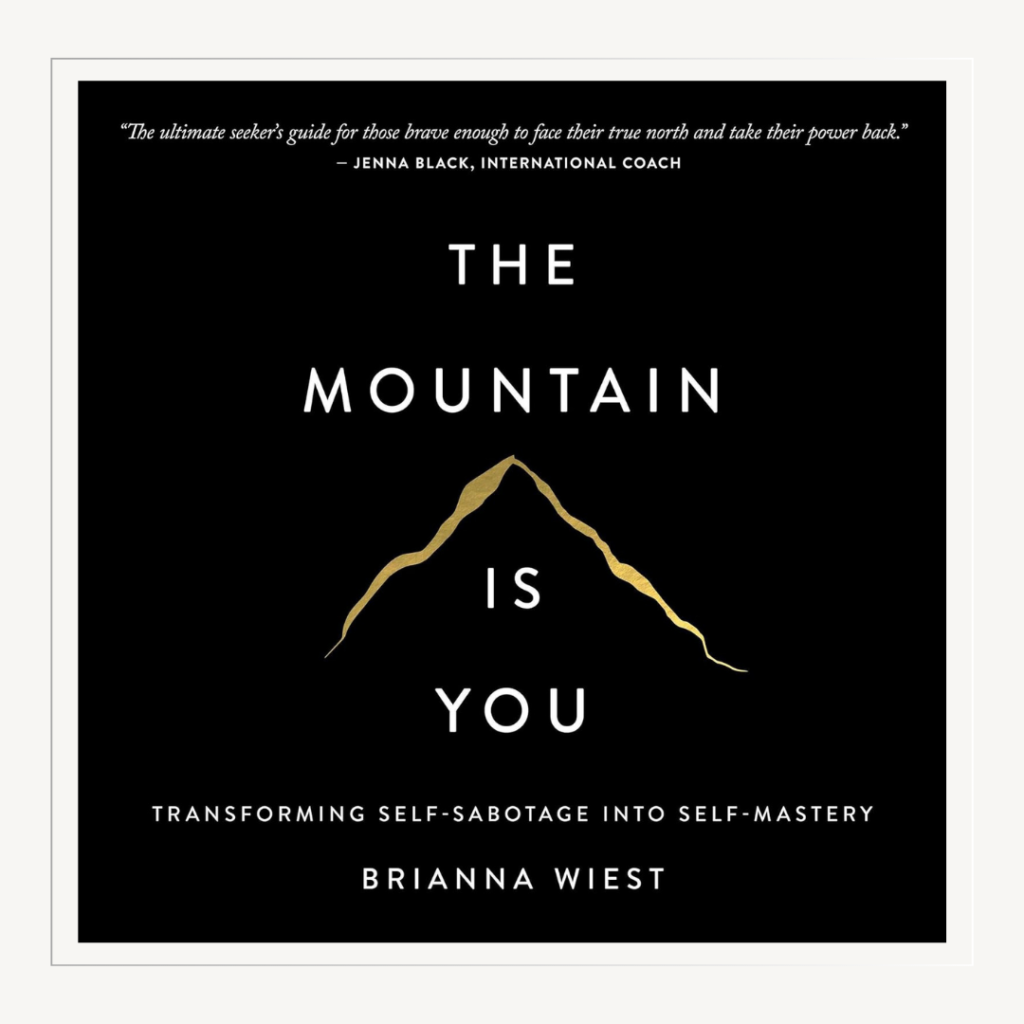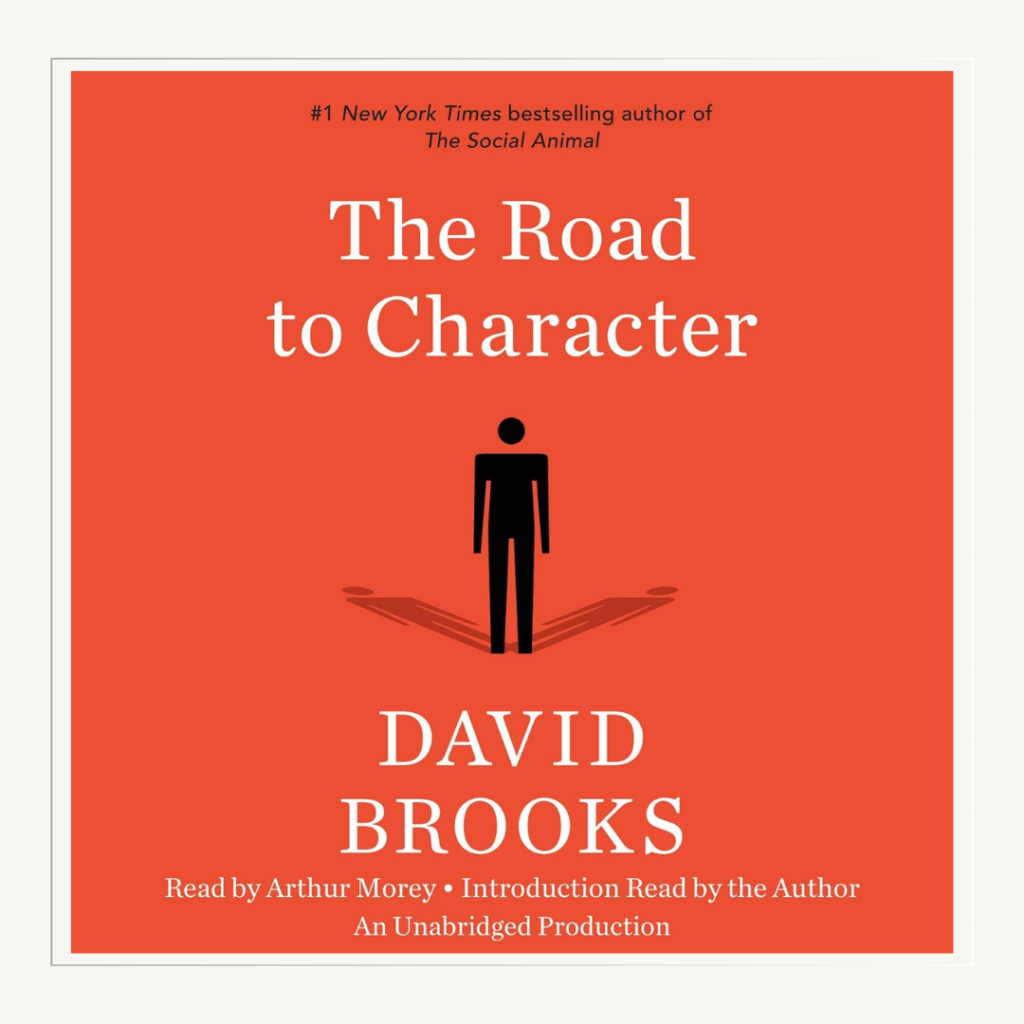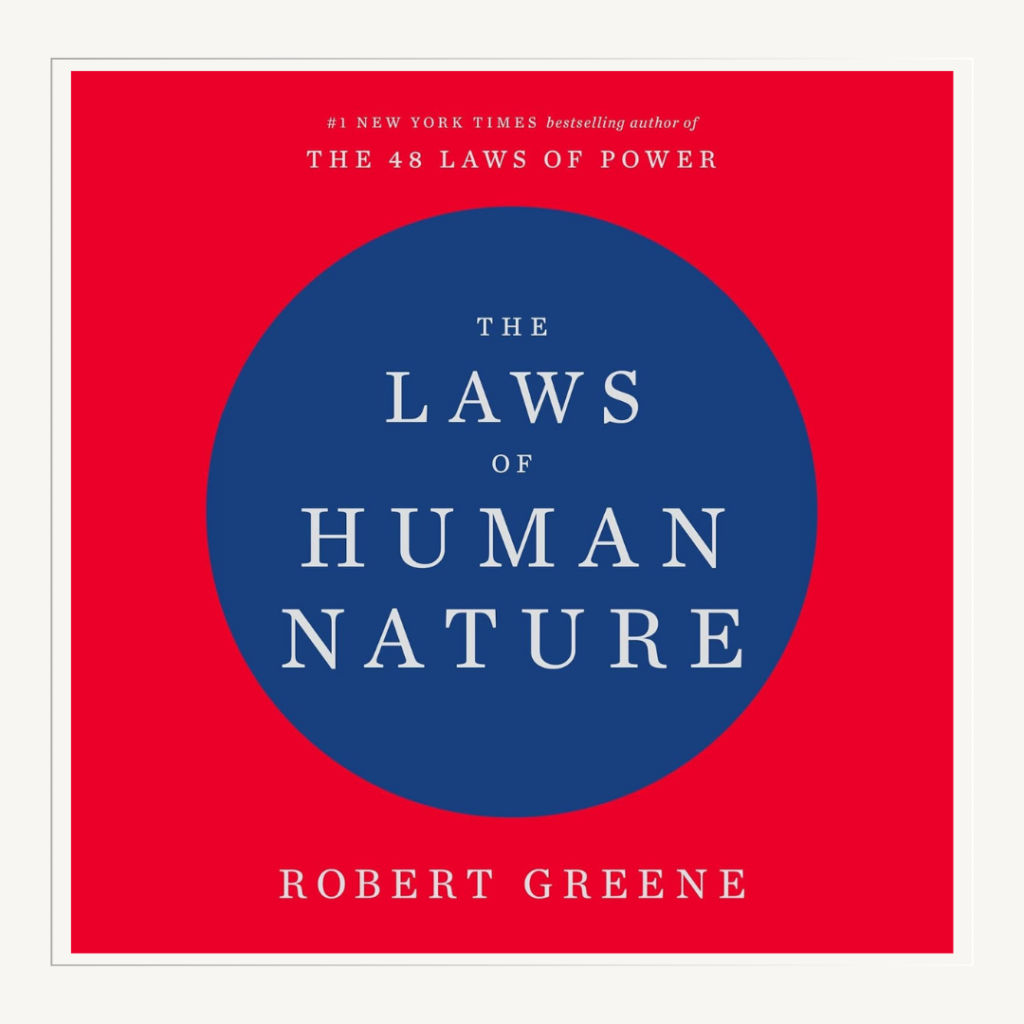Embarking on a journey of self-improvement can be incredibly rewarding, and having the right guidance makes all the difference. We’ve put together a list of five must-read self-improvement books that offer a mix of practical tips and deep insights to help you break bad habits, boost your character, and achieve your goals.
Whether you’re looking to make small, meaningful changes or dive into personal growth, these books provide the tools and wisdom you need for lasting transformation. So, grab a cup of coffee and get ready to explore these impactful reads that can set you on the path to a more fulfilled and empowered life.
Don't Believe Everything You Think: Why Your Thinking Is the Beginning & End of Suffering
Author: Joseph Nguyen (Author, Narrator, Publisher)
In this book, Joseph Nguyen explores the idea that our thoughts, rather than external circumstances, are often the source of our suffering. He encourages us to question the validity of our thoughts, especially those that create anxiety, fear, and stress. By learning to observe and detach from these automatic patterns, Nguyen argues, we can experience more peace, freedom, and clarity. His approach is rooted in mindfulness and self-awareness, offering a pathway to liberation from the mental traps that often hold us back.
Key ideas
Your thoughts are not always true – One of the main ideas is that thoughts are often based on assumptions, biases, or fears rather than reality. Learning to challenge these can lead to less emotional suffering.
The root of suffering is in our thinking – Nguyen explains that while we may believe external events cause our distress, it’s actually our perception and interpretation of these events that leads to suffering.
The Mountain Is You: Transforming Self-Sabotage into Self-Mastery
Author: Brianna Wiest
Brianna Wiest delves into the ways we often sabotage our own success and happiness, offering practical advice on overcoming these tendencies. Wiest argues that self-sabotage is not about weakness but is rooted in unmet emotional needs and unresolved internal conflicts. By confronting our inner “mountain,” which symbolizes our deepest fears and limitations, we can transform these obstacles into opportunities for growth. The book emphasizes the importance of self-awareness, emotional healing, and personal accountability to achieve lasting self-mastery and fulfillment.
Key ideas
Self-sabotage is a coping mechanism – Wiest explains that self-sabotage is often a defense mechanism we use to avoid facing uncomfortable emotions or challenges. It’s a way of protecting ourselves from perceived threats, even if it ultimately prevents growth.
The mountain represents your internal struggles – The “mountain” symbolizes the emotional and psychological barriers that stand between us and our goals. By acknowledging and working through these inner obstacles, we can unlock our full potential.
The Road to Character
Author: David Brooks
IN the book, Brooks explores the development of character and the importance of cultivating deeper virtues over superficial success. Brooks contrasts the “résumé virtues,” which focus on achievements and skills, with the “eulogy virtues,” which reflect the essence of who we are and how we contribute to others. Through a series of biographical sketches of historical and contemporary figures, he illustrates how embracing humility, struggle, and moral integrity leads to a more fulfilling and meaningful life.
Key ideas
The importance of humility and struggle – The book emphasizes that personal growth and character development often arise from facing challenges and embracing humility. Brooks suggests that overcoming difficulties and reflecting on our experiences contribute to a deeper, more resilient character.
The role of moral depth in a fulfilling life – Brooks highlights that a life of true fulfillment comes from developing moral depth and contributing to the well-being of others. He advocates for prioritizing character-building virtues over personal success and material achievements.
Atomic Habits: An Easy & Proven Way to Build Good Habits & Break Bad Ones
Author: James Clear
In his book, James Clear offers a practical guide to forming good habits and breaking bad ones through small, incremental changes. Clear emphasizes that tiny habits, when repeated consistently, lead to remarkable long-term results. He introduces the concept of the “compound effect,” where small actions build up over time, and provides actionable strategies to make habits more obvious, attractive, easy, and satisfying. The book highlights that success is the result of daily habits, not big changes, and that focusing on systems rather than goals is the key to lasting improvement.
Key ideas
The power of small habits – Clear emphasizes that small, consistent actions compound over time, leading to significant improvements. Instead of focusing on big, dramatic changes, success is about making tiny adjustments that accumulate.
Habit formation relies on the cue, craving, response, and reward cycle – Clear explains that every habit follows this four-step loop. To build good habits, we must make the cues obvious, the cravings attractive, the responses easy, and the rewards satisfying.
Focus on systems, not goals – Rather than obsessing over big goals, Clear advises focusing on the process or systems that lead to success. Habits shape our identities, and by focusing on building the right systems, long-term goals will naturally follow.
The Laws of Human Nature
Author: Robert Greene
In this book, Robert Greene explores the underlying motivations, emotions, and behaviors that drive human actions. Greene breaks down complex human tendencies, such as the need for power, social influence, and emotional intelligence, offering practical advice for navigating relationships, achieving personal growth, and mastering social dynamics. By becoming more aware of these universal laws, Greene argues, we can better control our impulses, improve decision-making, and cultivate stronger, more meaningful connections.
Key ideas
Understanding human motivations – Greene explores how basic drives such as the pursuit of power, the desire for approval, and the need for validation shape our behavior. By recognizing these motivations in ourselves and others, we can better navigate social dynamics and influence interactions.
The importance of self-awareness – Greene emphasizes that self-awareness is crucial for personal growth. By understanding our own biases, emotional triggers, and habitual responses, we can gain control over our actions and make more informed decisions.
Happy reading!
